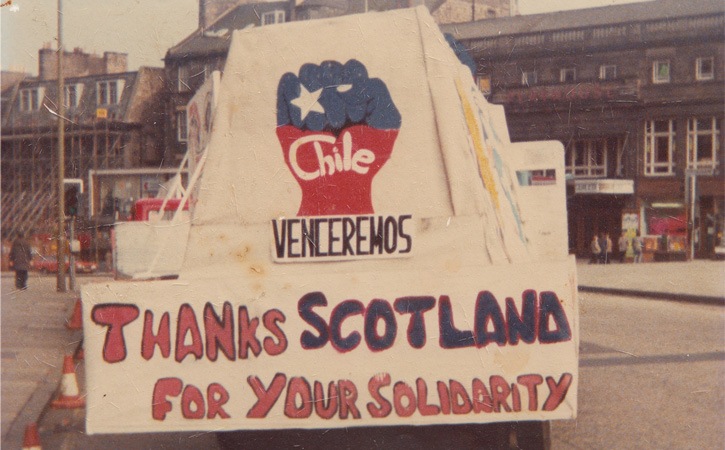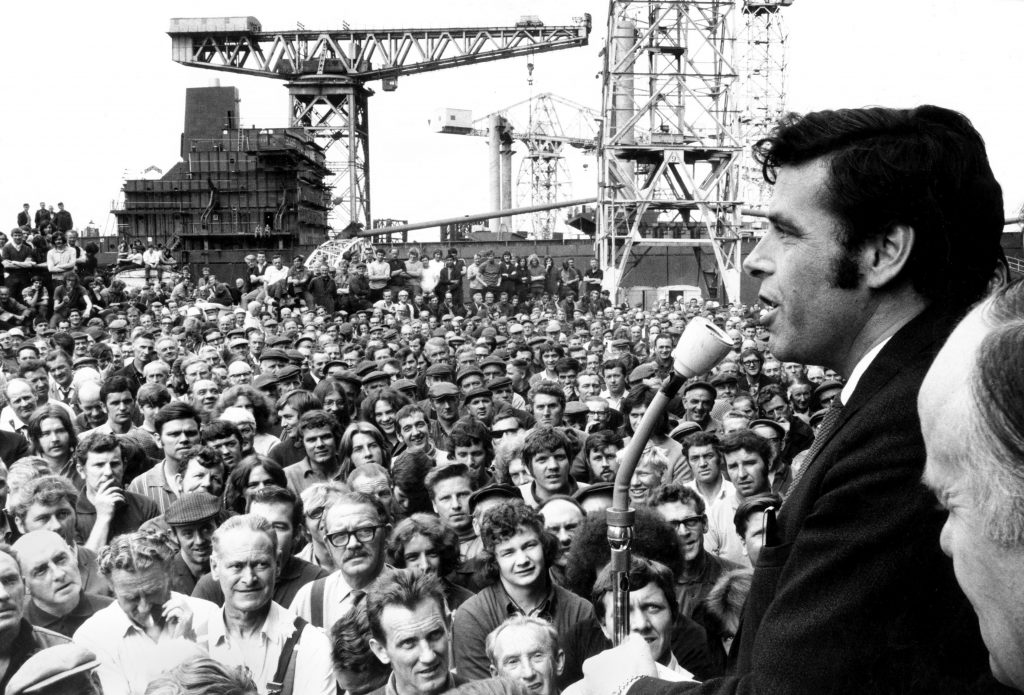Connolly and Edinburgh’s real, radical underbelly

Louie Gibson writes on the neoliberal sterility of the Edinburgh Fringe Festival, contrasting it with the former Edinburgh People’s Festival and the city’s working class history
Lessons from history: ‘Nae Pasaran’ review

Nae Pasaran is a 2018, hour-and-a-half documentary about about a group of workers at a Rolls-Royce factory in East Kilbride, Scotland, who refused to work on Chilean Air Force parts from 1974-78 due to the atrocities carried out in Chile by the Pinochet dictatorship.
The battles of the past can inform today’s struggles

As the Communist Party marks its 100th anniversary year, Tom Morrison, Scottish Secretary of the CP, looks to one of its most influential periods in the ’60s-70s where grassroots alliances were key.
Communists on Scotland’s National Question in 2020

YCL General Secretary, Johnnie Hunter, addresses the question of Scottish Independence and the options for working people in Scotland as we approach 2021.
The left should oppose Johnson’s Internal Market Bill – but not for the reasons you might expect

The government’s new Bill withdraws economic decision-making powers from devolved administrations just as they are set to escape EU ‘competition’ regulation, explains Communist Party International Secretary, John Foster.
We can’t wish away the National Question

Zoe McKeown provides a rounded view on the questions facing the left in Scotland – and across Britain – and the considers the potential of a campaign to achieve real Home Rule.
The Scottish Government is complicit in the Coronavirus tragedy

Michael Quinn points out that, contrary to much mainstream media coverage, Sturgeon’s SNP government has followed the lead of Johnson’s Tories in responding to the pandemic – and have failed just as miserably.
Poetry Corner: A Man’s a Man for a’ That by Robert Burns

A Man’s a Man for a’ That by Robert Burns, 1795.
Robert (or Rabbie) burns was born in Alloway, Ayrshire, on 25 January 1759. Burns was born to tenant farming parents, initially had very little formal education and worked as a farm labourer from a young age.
Burns drew much from what little patchy education he did receive but continued to work a variety of manual jobs. Burns’s father was unfortunate in farming and the family moved often, compelled by poverty and hardship.


